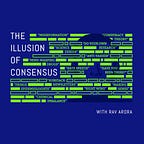In part one of my in-depth conversation with Dr. Robin Carhart-Harris, we explore the political and cultural forces shaping the resurgence of psychedelic therapy. We critique the dominant psychiatric paradigm, which has long reduced mental illness to purely neurochemical dysfunction (leading to the rise of SSRIs), ignoring the psychological, social, and spiritual roots of psychological suffering. Carhart-Harris highlights how this narrow framework has failed to address rising rates of depression, PTSD, and OCD. We also discuss the historical reluctance of institutions like the NIH to fund psychedelic research, despite mounting evidence of its therapeutic potential. Under the previous leadership, psychedelic science was sidelined—but with new NIH leadership and a shifting political climate, there is fresh hope for meaningful support. The conversation emphasizes the need for a more holistic, integrative approach to mental health—one that values inner healing, human agency, and the transformative power of psychedelic experiences.
Listen Now:
Spotify / Apple / Rumble / YouTube
Chapters:
00:00 Introduction to Psychedelic Therapy
12:48 The Political Landscape of Psychedelics
19:12 The Shift in Mental Health Paradigms
36:55 Understanding the Unique Power of Psychedelics
48:38 Interconnectedness of Psychology, Biology, and Ethics
56:11 Integration After Psychedelic Experiences
01:04:10 Critique of NIH and Funding Challenges
01:26:20 Psychedelics: Beyond Pharmacological Solutions
01:31:35 Expectations and Their Impact on Therapy
01:37:23 Efficacy and Side Effects of Psychedelic Therapy
Podcast sponsors:
1) Trinergy Health offers a 6-month program for mind-body recovery and wellness. Based on the foundational framework of Diet/trauma/toxins. To schedule an intake appointment, go to https://psychiatry2.com/schedule/ or call 262-955-6601. Use code Rav10 to get 10% discount for holistic psychiatry program.
2) Alcami Elements - a natural, adaptogenic herbal supplement to kickstart your day!
https://www.alcamielements.com/
Receive 10% OFF first order or 30% OFF subscription order using code: ILLUSION







